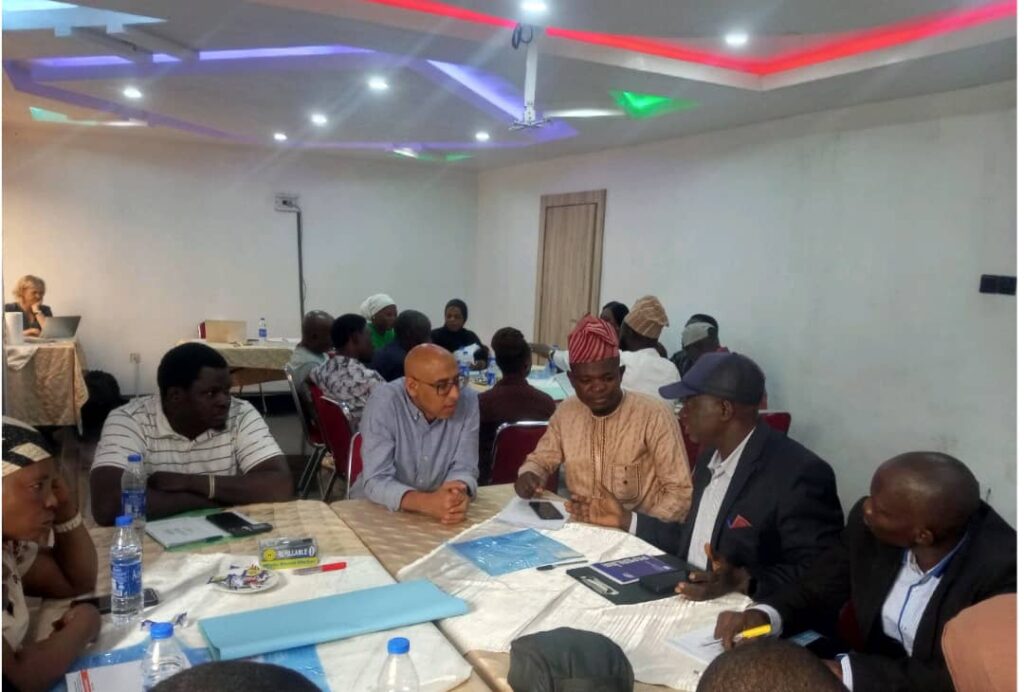A transdisciplinary research team from the UK, Spain, and Nigeria is collaborating with ruminant and aquaculture stakeholders to develop and validate an alternative to antimicrobials in livestock and aquaculture production.
Experts have raised concern that antimicrobial resistance (AMR) is a growing “silent pandemic”, stressing the urgent need for cost-effective and locally produced alternatives to antibiotics in developing countries, including Nigeria.
Over the past two days, Dr. Ismail Odetokun of the University of Ilorin and Dr. Mahmoud Eltholth of Royal Holloway University of London led participatory workshops with farmers and veterinarians to explore challenges and opportunities for adopting antibiotic alternatives in ruminants and aquaculture.
The activities form part of an ongoing research project titled “Bacteriocin-rich Extract from Engineered Lactic Acid Bacteria as an Antibiotic Alternative for Therapeutic and Prophylactic Use in Ruminants and Aquaculture (BAC4RumA)”, funded by the International Development Research Centre (IDRC), Canada, and UKaid/Global Antimicrobial Resistance Innovation Fund (GAMRIF).
The project aims to combat AMR by developing bacteriocins from engineered lactic acid bacteria to serve as safe, effective, and affordable alternatives to conventional antibiotics.
Speaking during the workshop, Dr. Odetokun, an Associate Professor at the Department of Veterinary Public Health and Preventive Medicine, University of Ilorin, said the project seeks to provide viable antibiotic substitutes that do not contribute to resistance.
“The way antibiotics are used in developing countries, including Nigeria, is problematic. We misuse and overuse them, and this leads to antimicrobial resistance. Our goal is to find effective, low-cost alternatives that can address this global health crisis,” he said.
He described AMR as a “silent pandemic,” warning that if left unchecked, it could cause up to 10 million deaths annually by 2050, with Africa — particularly Nigeria — projected to bear the highest burden.
According to him, laboratory studies have shown that bacteriocin-rich extracts perform better than traditional antibiotics against bacterial infections such as mastitis and aquaculture diseases.
“What remains is to scale up production and begin field trials in dairy cattle, goats, and tilapia. The results so far are promising, and we believe this will be a game-changer for livestock health,” he added.
Dr. Mahmoud Eltholth, a global health lecturer at Royal Holloway University, emphasized that reducing antibiotic usage and developing viable alternatives such as vaccines, probiotics, and herbal medicines are essential to slowing AMR.
He noted that the locally developed bacteriocin in Nigeria would be affordable and accessible to farmers. “When antibiotics fail, productivity drops, and resistant bacteria can spread to humans. This is a One Health issue,” he said.
Also speaking, Dr. Saka Shittu, a veterinary consultant, described the BAC4RumA project as timely, saying it would benefit both livestock producers and public health.
“This is not just a livestock issue; it’s about public health. We consume animal products treated with drugs, and those drugs may no longer work in humans. This project is a major step forward,” he noted.
Farmers and agribusiness operators who participated in the workshop lauded the initiative and expressed readiness to adopt the new product once it becomes available.
Oniye Kamaldeen, CEO of Onikam Farm and Multilink Ventures, praised the participatory format of the workshop, saying it helped identify real challenges and practical solutions.
On the aquaculture side, Dr. Basiru Afisu, an Associate Professor of Veterinary Physiology at UNILORIN, said fish farmers were eager to adopt standardized, research-backed herbal and probiotic alternatives to antibiotics.
“They’re already experimenting with herbal treatments. What they want now is something proven and effective — and that’s what this project promises,” he said.
Another participant, Mrs. Rahmat Omosanya, CEO of Toke Agroenterprises, described the session as “encouraging and educational,” saying fish farmers were fully ready to embrace the innovation.
Similarly, Ogunade Jonathan Abolade, General Manager of Yesha Yahu Nigeria Ltd, stressed the need for affordable and safe solutions, commending the research team for their transparency and commitment.
“We look forward to testing this product on our farms. It will be a big win for the aquaculture industry,” he said.















